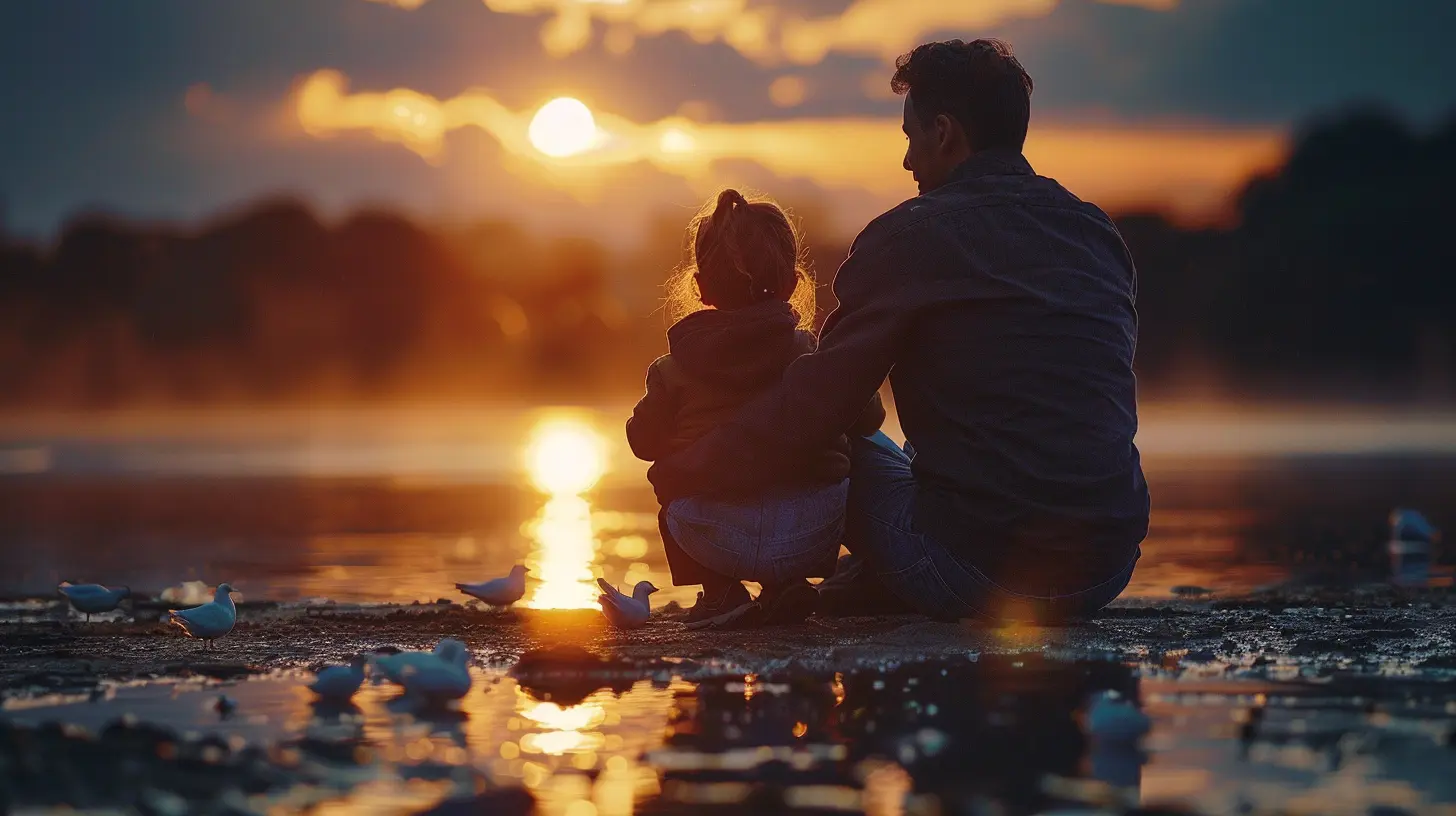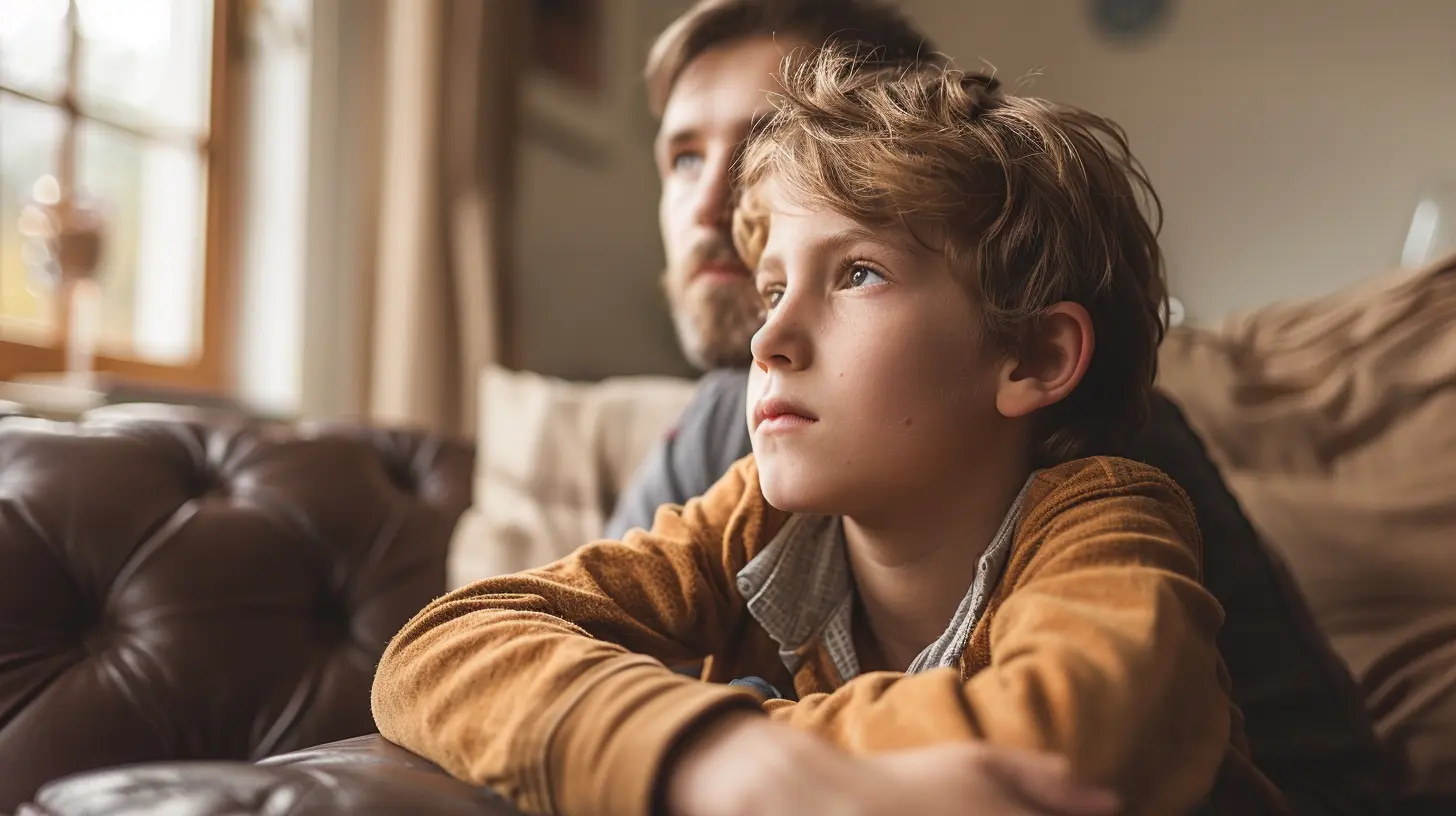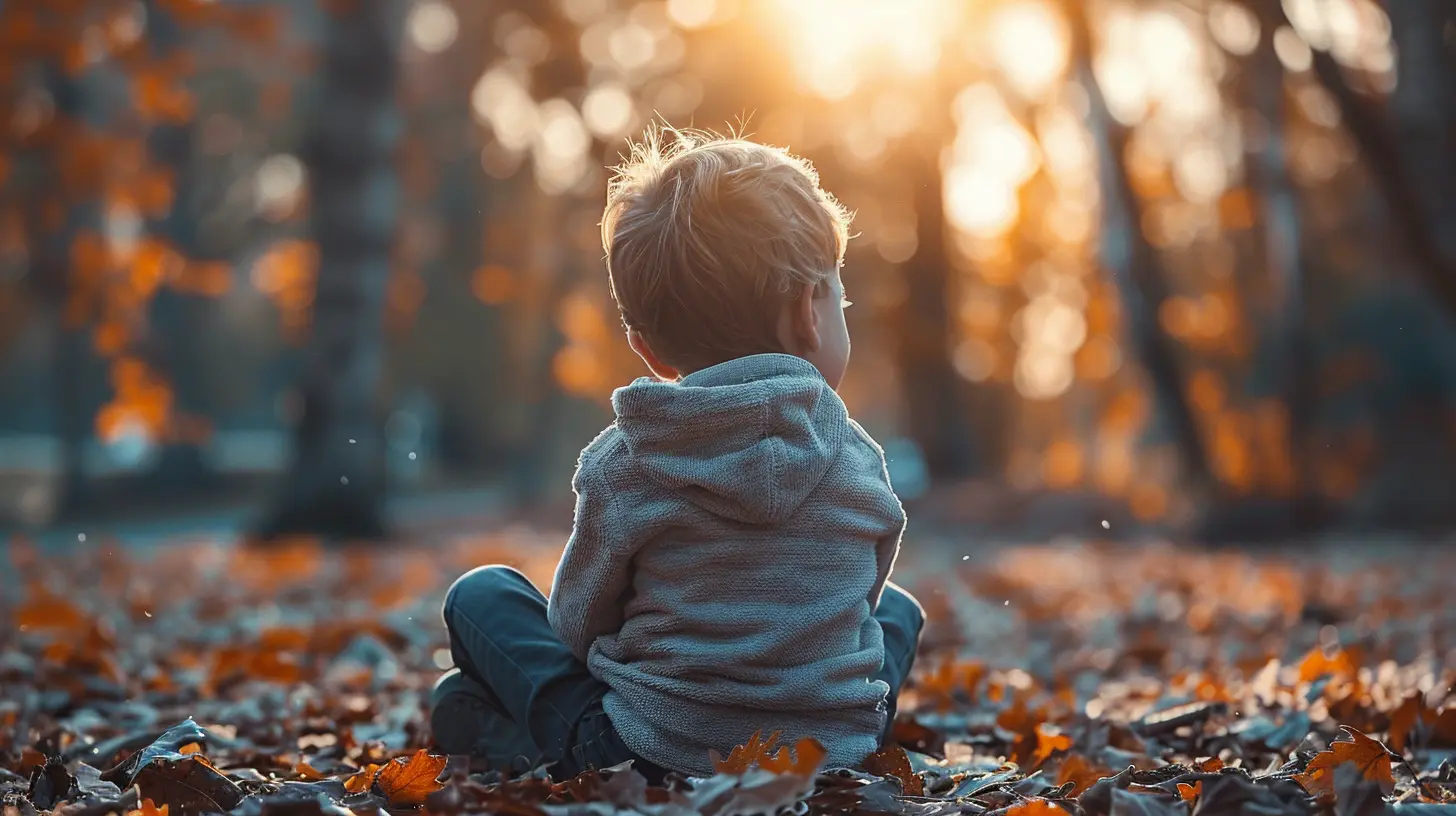Managing Parenting Guilt After Separation or Divorce
23 November 2025
Let’s be honest—parenting is already a rollercoaster, even on the best of days. Now throw separation or divorce into the mix, and suddenly that rollercoaster feels like it’s running off the track. If you’re reading this, chances are you’ve found yourself wrestling with parenting guilt after your relationship ended. You’re not alone, and boy, is that guilt real.
Whether it’s feeling like you “broke” the family, worrying about your kids adjusting, or thinking you’re not doing enough, that heavy feeling in your chest? Yeah, it has a name—parenting guilt. It’s sneaky, it’s draining, and it loves to show up uninvited. But here’s the good news: You can manage it. You can get a handle on that guilt and be the amazing parent your kids still see you as.
Let’s dive into how, shall we?
What Is Parenting Guilt, Really?
Parenting guilt is that nagging voice in your head that says, “I’m messing this up,” or “I could have done better.” After a separation or divorce, that voice often gets louder, doesn’t it? It’s like a nonstop playlist of self-doubt and regret.You might think:
- "My kids would be happier if we stayed together."
- "I’m not giving them a ‘normal’ childhood."
- "Am I enough on my own?"
Sound familiar?
This guilt stems from a deep love for your kids—so in some weird, roundabout way, it’s proof you care. But too much guilt can hold you back, cloud your judgment, and add stress to an already emotionally charged time. So it’s not about eliminating guilt entirely (because let’s be real, it’s stubborn), but learning how to manage it.
Why Separation or Divorce Triggers So Much Guilt
Separation and divorce are emotionally intense, no sugarcoating it. You’re grieving the end of something, adjusting to a whole new lifestyle, and trying to keep your kids stable through the chaos.Now add society’s unrealistic expectations into the mix. There’s this unspoken belief that “good” parents stay together, and if they don’t—well, they must have failed, right?
Wrong.
Families come in all shapes and sizes. And parenting after separation isn’t a downgrade—it’s just a different path.
The guilt often stems from:
- Feeling like you broke a promise to your children.
- Seeing your kids struggle and blaming yourself.
- Comparing your parenting to idealized, picture-perfect families on social media.
- Worrying about time apart from your kids.
Once we recognize where the guilt is coming from, we can start working through it.
The Silent Impact of Guilt on Parenting
Ever notice how guilt changes your behavior?You may start overcompensating—buying extra gifts, saying “yes” when you know it should be a “no,” or avoiding boundaries to keep the peace. And while these actions might ease that guilty pang temporarily, they don’t benefit your kids in the long run.
Children need consistency, structure, and love—not parents trying to buy their way out of guilt.
Letting guilt run the show often leads to:
- Poor communication
- Increased stress and burnout
- Strained co-parenting relationships
- Inconsistent discipline
- Codependent behaviors
Think of guilt like an engine warning light—it’s telling you to pause and check in. What’s really going on under the hood?
How to Manage Parenting Guilt After Separation or Divorce
Now for the good stuff. Let’s look at how to actually deal with parenting guilt in a healthy way. Here's your guilt-busting survival guide.1. Acknowledge Your Feelings—Without Judgment
First things first—it's okay to feel guilty. You're human. And parenting is messy, even without a divorce on your plate.But don’t let guilt run wild. Sit with it, name it, and try to figure out its root cause. Are you feeling guilty because your kids are struggling, or because others are judging you?
Journaling can help untangle this emotional ball of yarn.
2. Shift Your Focus to What You’re Doing Right
When guilt takes over, it’s super easy to obsess over what you think you’re doing wrong. Instead, try this little exercise: each night, write down three things you did right as a parent that day.Did you listen patiently? Cook dinner? Hug your kid when they needed it? That counts.
Parenting isn’t about perfection—it’s about showing up.
3. Communicate Honestly With Your Kids
Kids are incredibly intuitive (and let’s be real, they can sniff out guilt a mile away). Have age-appropriate conversations with them about what’s going on. Assure them that the separation wasn’t their fault and that both parents love them deeply.When they sense your openness, they’re more likely to trust you and share their own feelings too.
4. Establish New Routines and Traditions
Divorce disrupts routines, which can make everyone feel unmoored. Creating new family traditions or habits (movie nights, weekend breakfasts, shared hobbies) can bring comfort and stability.These new routines remind your kids—and you—that your connection is still strong, even if the family structure changed.
5. Set Boundaries With Your Ex (and Yourself)
Healthy co-parenting requires boundaries. You don’t have to agree on everything, but showing a united front where it matters (like school events, discipline, and major decisions) helps your children feel secure.Boundaries with yourself matter too. You don’t need to be a superhero. Give yourself permission to rest, ask for help, and say “no” to things that don’t serve your family's peace.
6. Stay Off the Comparison Train
Scrolling through Instagram and seeing perfect family portraits? Don’t do it to yourself. Everyone puts their best foot forward online—but behind the scenes, every family has their struggles.You’re not failing. You’re navigating a tough chapter with love and courage. Give yourself that credit.
7. Talk to a Therapist or Join a Support Group
Talking helps. Whether it's a therapist, counselor, or local support group, opening up about your feelings can be a game-changer. Sometimes just hearing “me too” can lighten your emotional load.Mental health should never be an afterthought. It’s part of showing up as your best self—for your kids and for you.
8. Focus on Quality Over Quantity
Spending every waking moment with your child doesn't make up for a separation. What matters most is the quality of the time you do have together.Make that time count. Be present. Put your phone down. Laugh together. Listen. These are the memories that stick.
Helping Your Kids Through Their Emotions
Your kids might struggle too—and seeing them hurt can amplify your guilt. But remember, kids are resilient when they feel supported.You can help by:
- Encouraging open dialogue
- Being consistent with rules and routines
- Validating their feelings without fixing everything
- Reminding them that they are loved—always
Your job isn’t to protect them from every hard thing. It’s to walk beside them through it.
Rewriting Your Parenting Story
Your family story didn’t end with your separation—it just turned a page. And guess what? This next chapter still holds love, growth, laughter, and connection.You have a chance to show your kids what strength, adaptability, and genuine love look like. You’re not broken; you’re evolving.
Let go of the idealized "perfect parent" image and embrace the beautifully imperfect reality you're living in. That’s where the real parenting magic lies.
Final Thoughts: Guilt Doesn’t Get the Final Say
So yeah, parenting after separation isn’t easy. There's guilt, doubt, and a million tiny decisions to make every day. But there’s also room for healing, connection, and joy.Guilt might knock on your door sometimes—but you get to choose whether it stays. You’re doing so much better than you think. And your kids? They don’t need a perfect parent. They just need you—real, loving, flawed, and fully present.
Let go of the guilt. Hold onto the love.
all images in this post were generated using AI tools
Category:
Single ParentingAuthor:

Steven McLain
Discussion
rate this article
1 comments
Holden McLean
This topic resonates deeply with many parents, especially those navigating the complexities of post-separation life. How do we balance our needs with our children's well-being? I’m curious to hear about practical strategies that can help alleviate guilt while fostering a positive co-parenting relationship. What insights can you share?
November 28, 2025 at 4:04 AM

Steven McLain
Finding balance is key. Prioritize open communication with your co-parent, establish clear boundaries, and practice self-care. Focus on creating positive experiences with your children, and remind yourself that prioritizing your well-being ultimately benefits them too.


